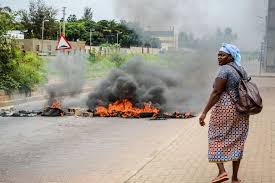

In March 2011, popular discontent with the Ba’athist regime ruled by Bashar al-Assad triggered large-scale protests and pro-democracy rallies across Syria, as part of the wider Arab Spring protests in the region.
Estimates vary, but between 350,000 and 606,000 people are estimated to have been killed in Syrian civil war since 2011. The Assad government also deployed chemical weapons, and Islamic State/Daesh rose to capture significant territory in both Iraq and Syria before losing its final Syrian territory in 2019.
Six foreign actors were involved militarily: Iran, Hezbollah, and Russia in support of Assad; the US against Islamic State and in support of the Kurdish- led Syrian Democratic Forces; Turkey in support of the Syrian National Army
(both Turkey and the US acting in opposition to Assad); and Israel, targeting Hezbollah and Iranian force.
In addition, the UK and France conducted airstrikes in 2019 against chemical weapons facilities used by Assad forces. In 2013, the House of Commons had voted against military action in response to the alleged use of chemical
weapons.
The military intervention of Russia in 2015 was widely seen as a turning point, allowing Assad forces to expel the opposition from Syria’s second city, Aleppo. Most observers increasingly considered that Assad would hold onto
power and Syria would become one of many “frozen conflicts” worldwide, with little change in military control. By 2020, Assad forces held around 60% to 70% of Syrian territory and, despite continued violence and fighting, there
was little significant change in zones of control again until 2024.
International attitudes to Assad also changed, and regional powers increasingly reached out to his government in the 2020s when he appeared likely to remain in power. Having been suspended from the Arab League in
2012 (the league consists of Arab states in the Middle East and North Africa), Assad was invited to rejoin in 2023. The significance of this was limited by continuing US sanctions under the Caesar Syria Protection Act, which
sanctions Assad government officials, the economy (including the oil and construction sectors) and non-Syrian entities that did business with Assad. The legislation is due to expire in December 2024, unless renewed.
Source: Syria after Assad: Consequences and next steps in 2024/25


